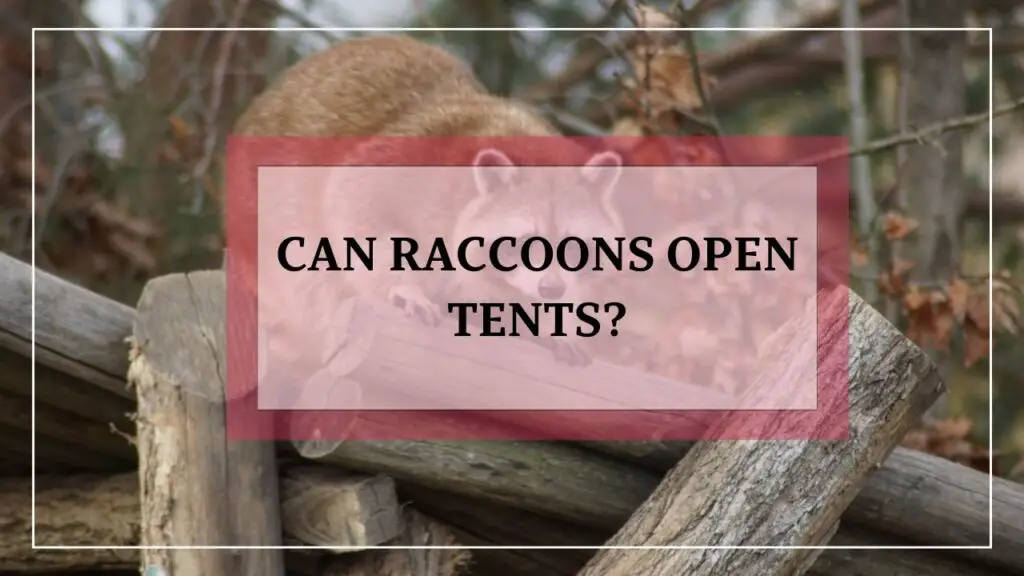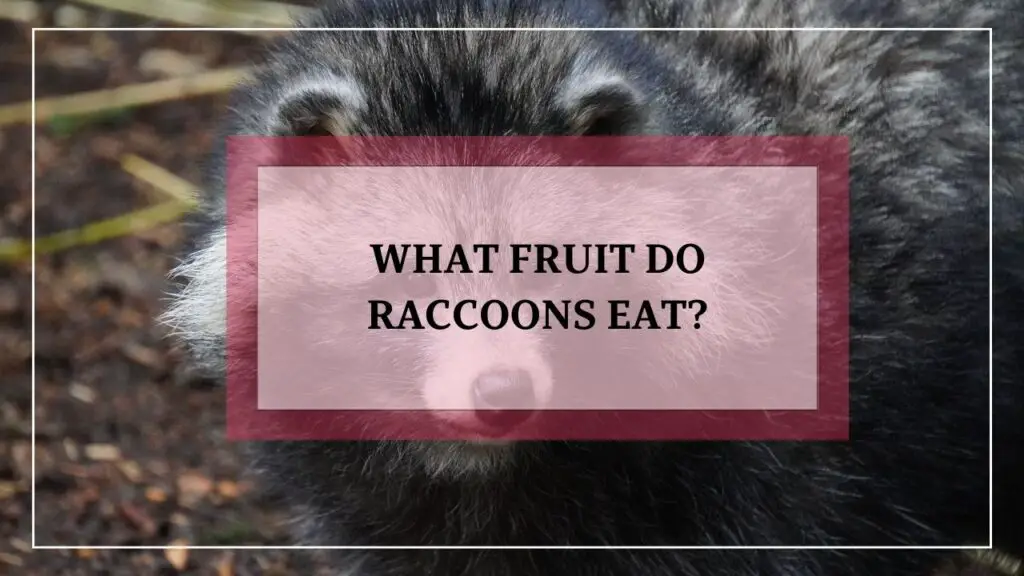Have you ever wondered if raccoons can open tents? Well, let’s find out! Raccoons are clever and resourceful animals known for their mischievous behavior. They have nimble paws and sharp claws, which make them excellent climbers and problem solvers. Many people enjoy camping in the great outdoors and sleeping in tents, but sometimes these sneaky critters can cause trouble.
So, can raccoons open tents? The answer is yes! Raccoons have been known to open zippers and unfasten Velcro on tents to get inside. They are attracted to the smell of food and might try to steal your snacks if they can get in. It’s important to remember to keep your tent securely closed and store your food in sealed containers to prevent any unwanted raccoon visitors. Let’s learn more about these clever creatures and how we can protect our tents from their prying paws!
Raccoons and Tents: The Intriguing Relationship
So, here’s the burning question: Can raccoons open tents? It might sound like the start of a campfire horror story, but it’s a legitimate concern for many campers. Raccoons are resourceful and curious creatures, and their nimble fingers and problem-solving skills make them quite capable of exploring new things, including tents.
Why might raccoons be attracted to tents, you ask? Well, there are a few reasons. First and foremost, raccoons are always on the lookout for food. Your tent, with its delicious snacks and leftovers, can be an irresistible treat for these scavengers. Plus, tents provide shelter, which is another appealing factor for these adaptable critters. And let’s not forget their natural curiosity – if they see a closed tent, they might just have to investigate what’s inside.
Now, you might be thinking, “Is this really a thing? Can raccoons actually open tents?” The answer is yes, they can. Numerous anecdotal evidence and observations from campers have shown that raccoons are quite adept at getting into tents. Some campers have even shared stories of waking up to find a raccoon snoozing beside them inside their tent!
But before you start picturing a raccoon invasion on your next camping trip, let’s put things into perspective. While raccoons opening tents is possible, it’s not an everyday occurrence. However, it’s always better to be prepared and take precautions.
When it comes to raccoons and tents, there are a few potential risks and concerns to consider. First, raccoons can cause damage to your tent while trying to get in, especially if they smell food inside. Second, raccoons can carry diseases and parasites, so having them inside your tent might pose hygiene and safety risks. Lastly, a raccoon encounter can be quite startling and potentially dangerous, especially if you startle the raccoon or if it feels threatened.
So, what can you do to prevent raccoons from opening your tent? Well, here are a few tips:
1. Choose your campsite wisely:
Try to camp in areas away from known raccoon habitats, such as garbage bins or food storage areas. Doing so reduces the chances of raccoons being in close proximity to your tent.
2. Store your food securely:
Invest in raccoon-proof containers or lockable coolers to store your food. Keeping your food sealed and locked away will not only deter raccoons but also other wildlife that may be attracted to the smell.
3. Keep your tent closed and zipped:
When you’re not inside your tent, make sure it’s securely closed and zipped up. This will make it harder for raccoons to get in and less likely that they’ll be tempted to investigate.
4. Avoid leaving food or strong-smelling items in your tent:
Raccoons have a keen sense of smell, so avoid leaving any food or strongly scented items inside your tent. This includes things like toiletries, gum, or even dirty dishes. Keeping your tent odor-free will reduce the chances of attracting raccoons.
5. Utilize deterrents:
If you’re concerned about raccoons, you can try using deterrents to keep them away from your tent. Some options include setting up bright lights, playing loud noises, or using natural repellents like vinegar or ammonia. These methods can help deter raccoons from getting too close to your campsite.
Remember, if a raccoon does manage to get into your tent, it’s important to remain calm. Making noise or using deterrents can often scare them away. However, if you’re unsure or uncomfortable dealing with the situation, don’t hesitate to seek assistance from park rangers or wildlife professionals.
Ultimately, it’s crucial to respect wildlife and their natural habitat. Raccoons are fascinating creatures, and although they might cause some mischief, they play an important role in ecosystems. By taking the necessary precautions and coexisting with raccoons, we can enjoy our camping trips while appreciating the wonders of nature.
Preventing Raccoons from Opening Tents
Choosing the Right Campsite
When setting up your campsite, it’s important to consider the location. Look for a spot away from known raccoon habitats, such as dense forests or areas with easy access to food sources. Raccoons are resourceful and will be more likely to investigate tents if they know there’s a potential snack inside. So, choose a campsite that minimizes the chances of raccoon encounters.
Secure Food Storage
One of the main attractions for raccoons when it comes to tents is the possibility of finding food. To prevent these curious critters from opening your tent, make sure you store all food securely. Use raccoon-proof containers that are difficult for them to open. Consider investing in bear-resistant canisters or hanging food from a tree branch using a bear bag system. Remember, raccoons have nimble fingers and dexterous paws, so make it as challenging as possible for them to access your snacks.
Keep Your Tent Closed and Zipped
It may seem obvious, but always make sure your tent is securely closed and zipped when you’re not inside. Raccoons are experts at finding small openings and can easily slip into an unzipped tent. Take a moment to double-check before leaving your tent or going to sleep. You don’t want to wake up to a surprise raccoon visitor rummaging through your belongings.
Avoid Leaving Strong-Smelling Items Inside Tents
Raccoons have a keen sense of smell, and strong odors can pique their curiosity. Avoid leaving any food or strongly scented items inside your tent, as these can attract raccoons. Keep snacks and toiletries in sealed containers, and if possible, store them away from your sleeping area. By minimizing enticing smells, you reduce the chances of raccoons being drawn to your tent.
Utilize Deterrents
If you’re concerned about raccoons approaching your tent, there are a few deterrents you can try. Setting up motion-activated lights around your campsite can help scare off these nocturnal creatures. Raccoons don’t like bright lights and will likely avoid the area. You can also use noise as a deterrent by playing nature sounds or setting up a radio near your tent. Additionally, some natural repellents, like peppermint oil or ammonia-soaked rags, can help keep raccoons at bay. Remember to check local regulations regarding the use of repellents to ensure you’re using them responsibly and safely.
Remember, prevention is key when it comes to raccoons and tents. By following these tips, you can greatly reduce the chances of these curious critters snooping around your campsite. Enjoy your camping trip without any unexpected raccoon encounters!
FAQs
Can raccoons open tents?
Yes, raccoons are known for their dexterous paws and can often open tents that are not properly secured. They are curious and intelligent animals, capable of manipulating zippers, latches, and other fastenings.
How can I prevent raccoons from opening my tent?
To prevent raccoons from opening your tent, make sure all openings and fastenings are secured properly. Use bungee cords or additional clips to reinforce the tent’s closures. Avoid leaving any food or scented items inside the tent as they can attract raccoons.
Are there any specific tent designs that raccoons cannot open?
While there are no tent designs that are completely raccoon-proof, tents with double-layered doors or overlapping flaps can make it more challenging for raccoons to open. Additionally, tents with heavy-duty zippers or buckles can provide extra security against raccoon intrusion.
Conclusion
In conclusion, raccoons are truly fascinating creatures. Their resourcefulness, curiosity, and problem-solving skills make them adaptable to various environments, including campsites. While raccoon tent encounters can be intriguing, it’s important to take precautions to prevent any potential issues.
By understanding raccoons’ natural abilities and behaviors, we can better prepare ourselves for their potential interest in tents. Their dexterous paws and nimble fingers allow them to manipulate objects and open various containers, making tents an enticing challenge for them. However, by maintaining a clean campsite, properly storing food, and keeping tents securely closed, we can greatly reduce the likelihood of raccoons opening our tents.
If a raccoon does enter your tent, it’s crucial to remain calm and avoid direct confrontation. Making noise or using deterrents can help scare the raccoon away safely. If needed, seek assistance from park rangers or wildlife professionals to ensure the situation is handled properly.
Remember, coexistence with wildlife is essential. Raccoons play an important role in ecosystems and deserve our respect. By appreciating their unique qualities and taking appropriate measures to prevent conflicts, we can enjoy the beauty of nature while ensuring the safety and well-being of both ourselves and raccoons.
So next time you’re out camping, keep an eye out for these resourceful and curious creatures. And don’t forget to zip up your tent!



